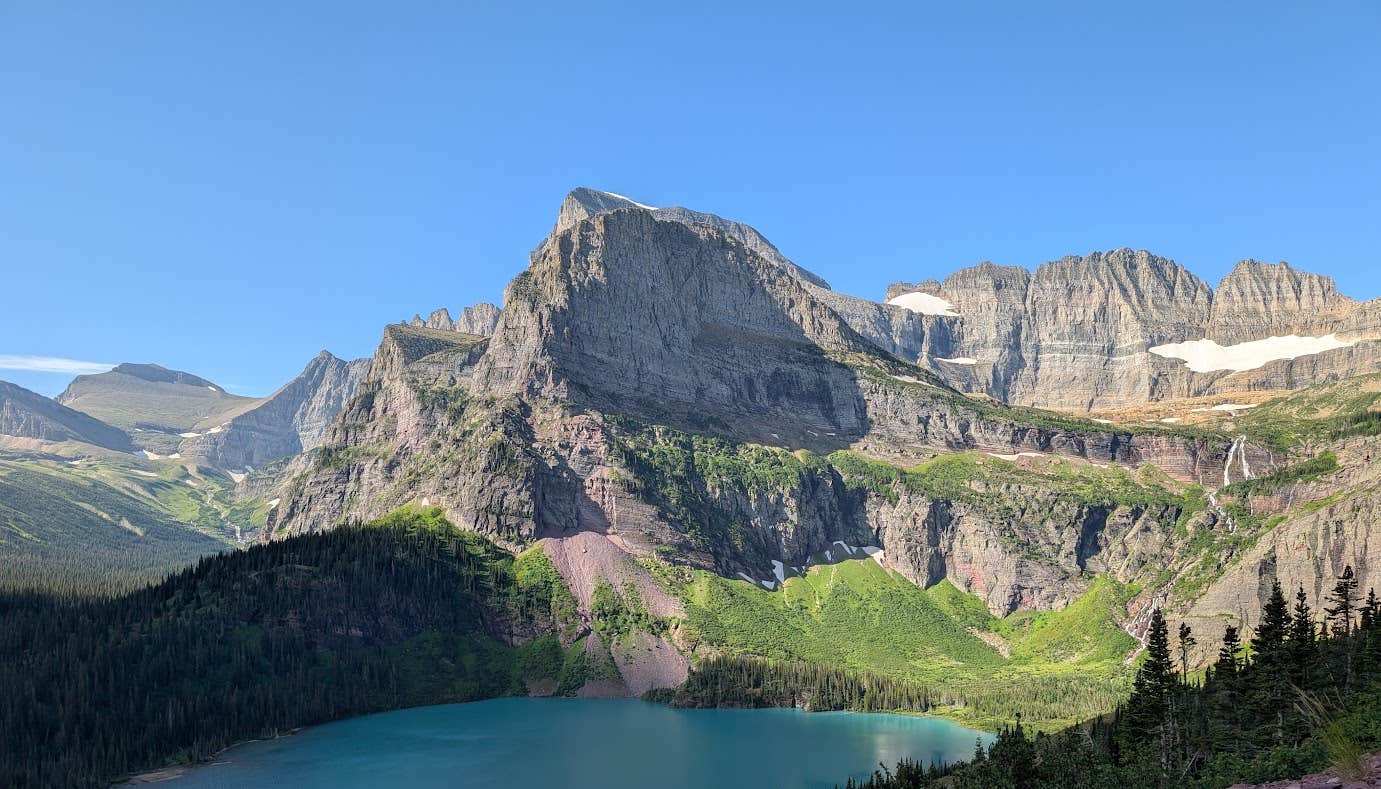Complete Guide to Camping in Glacier National Park
Glacier National Park boasts 13 campgrounds with around 1,000 sites scattered across its rugged mountain landscapes. From the shores of Lake McDonald at Apgar to the remote wilderness of the North Fork, campers can experience everything from convenient RV camping near visitor hubs to solitary tent sites beneath star-filled skies. Beyond the park's boundaries, additional camping options abound in surrounding national forests, tribal lands, and gateway towns, ranging from primitive free Glacier campsites to full-service RV resorts and parks near Glacier National Park. Each area of the park offers a unique camping experience - whether it's waking up to sunrise over St. Mary Lake, watching wildlife roam near Many Glacier, or falling asleep to the sound of a rushing river in the backcountry. This comprehensive guide covers everything you need to know to plan, book, and enjoy a Glacier National Park camping trip, with insider tips from park experts and The Dyrt's camping community.
Glacier National Park Camping at a Glance
Glacier National Park's campgrounds operate on a mix of reservation and first-come, first-served systems. Seven campgrounds require advance reservations (bookable on Recreation.gov up to 6 months in advance for peak summer dates) while the remaining six are first-come, first-served. Popular campgrounds like Fish Creek, Many Glacier, and St. Mary often book out as soon as reservations open, so planning ahead is crucial. During the busy summer season, camping fees range from about $15 to $30 per night depending on amenities and location. Most campgrounds open by late May or June and close in mid-September, with Apgar (west side) and St. Mary (east side) offering limited year-round camping in primitive conditions. Keep in mind 2025 brings special considerations: Many Glacier Campground is closed for the entire 2025 season due to major area improvements. Even in summer, Glacier's mountain weather stays cool - daytime highs reach the 70s-80s°F at lower elevations, but nights can plunge into the 40s°F. Always pack warm layers for chilly nights and be prepared for fast-changing conditions in this alpine environment.
Glacier National Park Campground Quick Facts
| Quick Facts | Details |
|---|---|
| Number of Campgrounds | 13 campgrounds with approximately 1,000 total campsites across Glacier's east and west sides |
| Total Campsites | ~1,010 sites total. Apgar: 194, St. Mary: 148, Many Glacier: 110, Fish Creek: 178 (second-largest) |
| Campsite Costs | $10 (primitive) up to $23 per night for standard sites in summer Group sites $40-$70 per night (where available) |
| Reservation Platforms | Recreation.gov (6-month advance booking for most reservable sites; some released ~4 days ahead) |
| Camping Seasons | Most campgrounds open late May or June and close by late Sept Apgar and St. Mary offer limited winter camping (primitive, no water) |
| Temperature Ranges | Summer: Days 70-80°F, Nights 40-50°F at lower elevations Spring/Fall: Days 50-60°F, Nights 20-30°F (often freezing) |
| 2025 Updates | Many Glacier Campground closed all 2025 Timed-entry vehicle reservations required for West Entrance & North Fork (7am-3pm) |
Glacier Campgrounds: Complete Guide
West Glacier & Lake McDonald Area Campgrounds
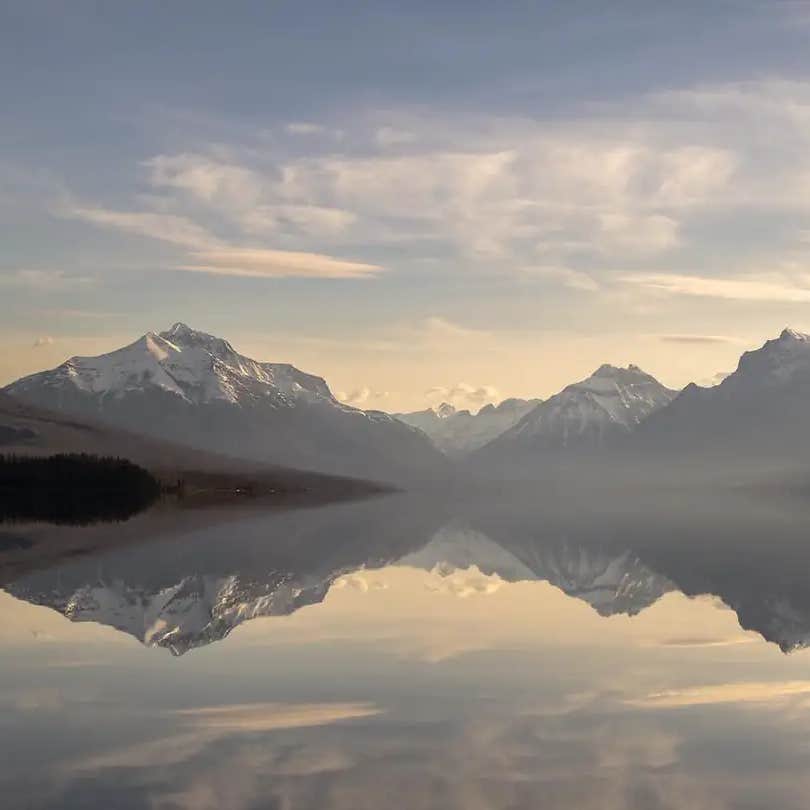
Apgar Group Sites — Glacier National Park
Apgar Campground (West Glacier) is Glacier's largest campground with 194 sites, situated near the park's West Entrance and the southern end of Lake McDonald. Open year-round (primitive in winter), Apgar offers ready access to the Apgar Village amenities - visitor center, camp store, café, and boat rentals. Sites are in a shady forest a short walk from Lake McDonald's shore, perfect for sunset views over the water. Flush toilets, potable water, and even access to token-operated showers (at nearby Apgar village) make it a comfortable base for both tent campers and RVs up to 40 feet. Reservations are required in summer, while off-season camping is first-come, first-served.
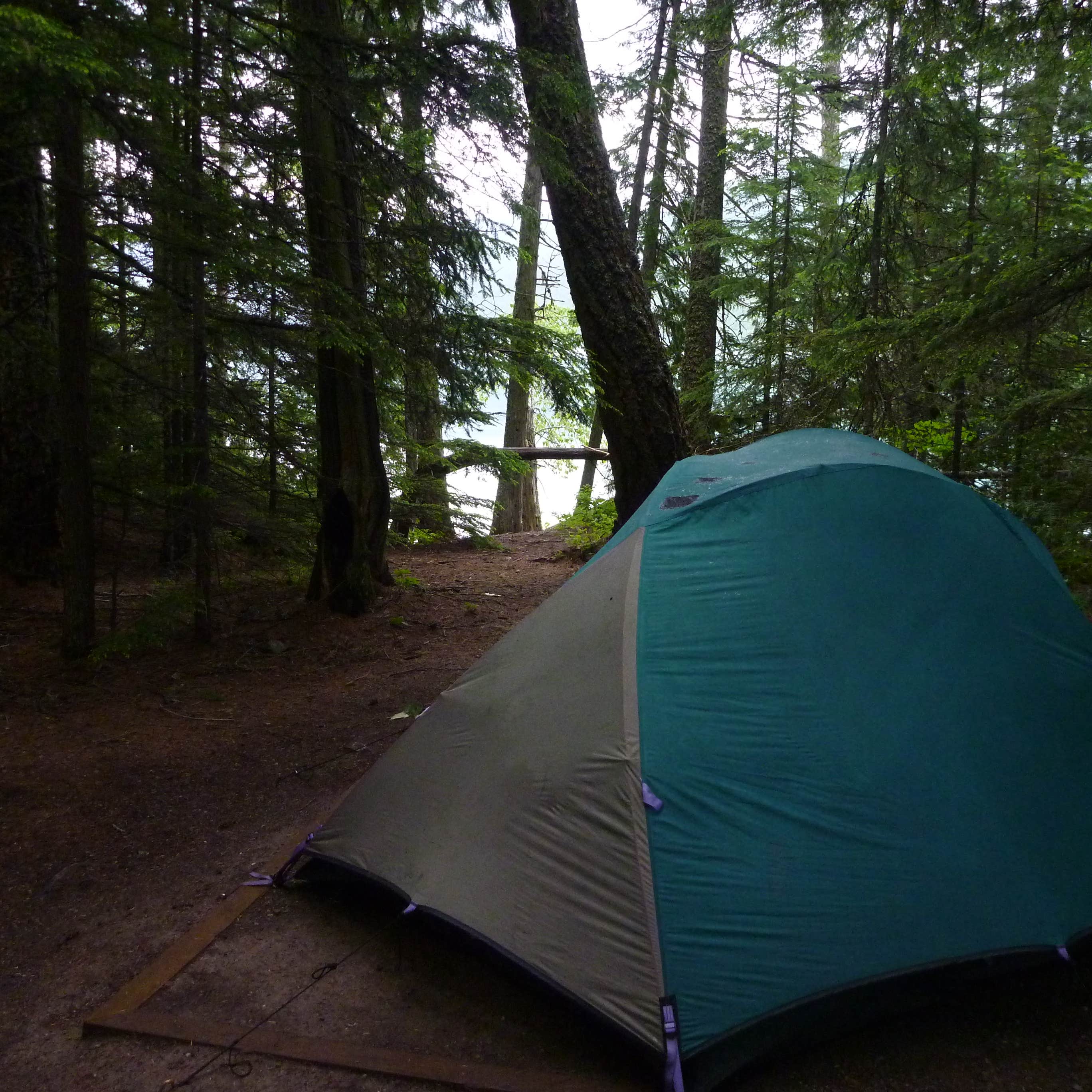
Fish Creek Campground — Glacier National Park
Fish Creek Campground (West Glacier) is tucked on the west side of Lake McDonald, offering 178 sites in a peaceful, forested setting. It's the park's second-largest campground and requires reservations during summer. Many sites are set on loops near the lakeshore - Loop D in particular has sought-after spots with partial lake views and lake access. Each site has a picnic table and fire ring, with modern restrooms (flush toilets, running water) available. Showers are accessible at a nearby facility in the campground. Campers love the quiet, secluded feel despite the campground's size, and the location is ideal for exploring Lake McDonald and hopping on the Going-to-the-Sun Road shuttles at Apgar.
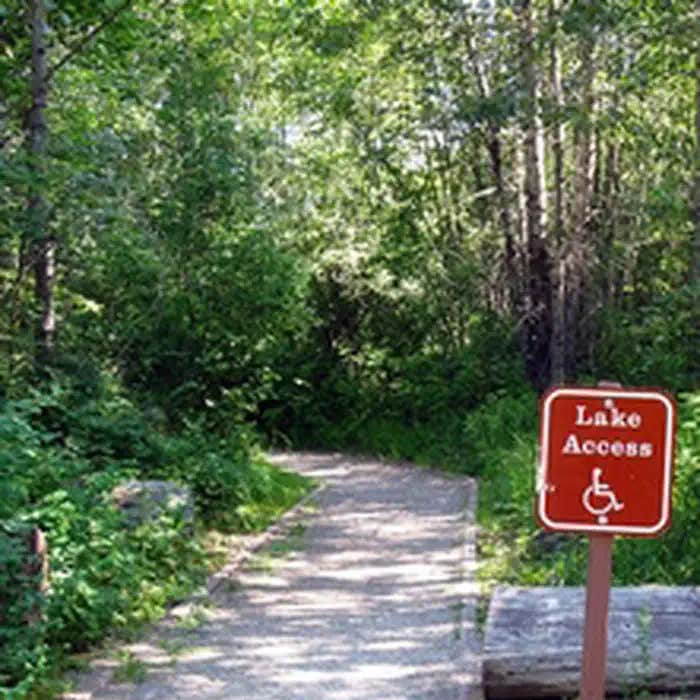
Sprague Creek Campground — Glacier National Park
Sprague Creek Campground (Lake McDonald area) sits on the northeast shore of Lake McDonald, offering just 25 campsites and a more intimate atmosphere. This campground is tents-only (small RVs under 21 ft allowed, no towed campers) due to very tight roads and sites. Reservations are required for all dates. Sprague Creek's appeal is its proximity to Lake McDonald - some sites have filtered lake views through the trees, and a short path leads to a pebble beach with spectacular views across the water. Campsites are shaded by cedar and fir trees, each equipped with a picnic table and fire grate. Flush toilets are provided, but no showers or generators here, preserving the quiet.
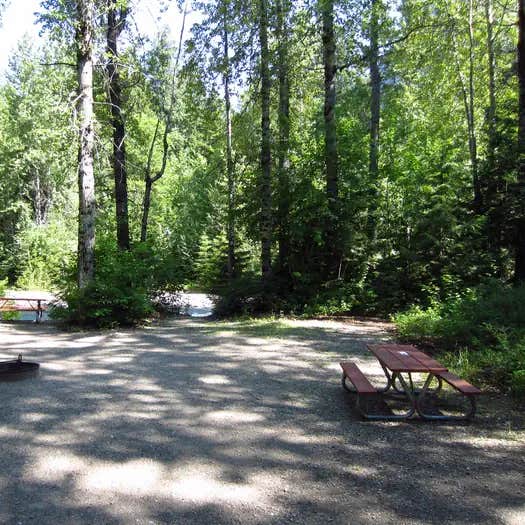
Avalanche Campground — Glacier National Park
Avalanche Campground (Lake McDonald area) lies along Going-to-the-Sun Road just west of the Continental Divide, near the popular Trail of the Cedars and Avalanche Lake trailhead. Its 87 sites accommodate tents and smaller RVs (up to 26 ft). Flush toilets and potable water are available, but no showers or hookups. Avalanche typically operates from mid-June to early September and is extremely popular - advance reservations are required. The campground sits in an old-growth forest of western hemlock and cedar, providing ample shade and a mossy, fern-filled ambiance. Its location makes it a prime spot for hikers; you can walk directly to the Trail of the Cedars boardwalk and the 4.5-mile roundtrip hike to Avalanche Lake.
Remote North Fork Campgrounds
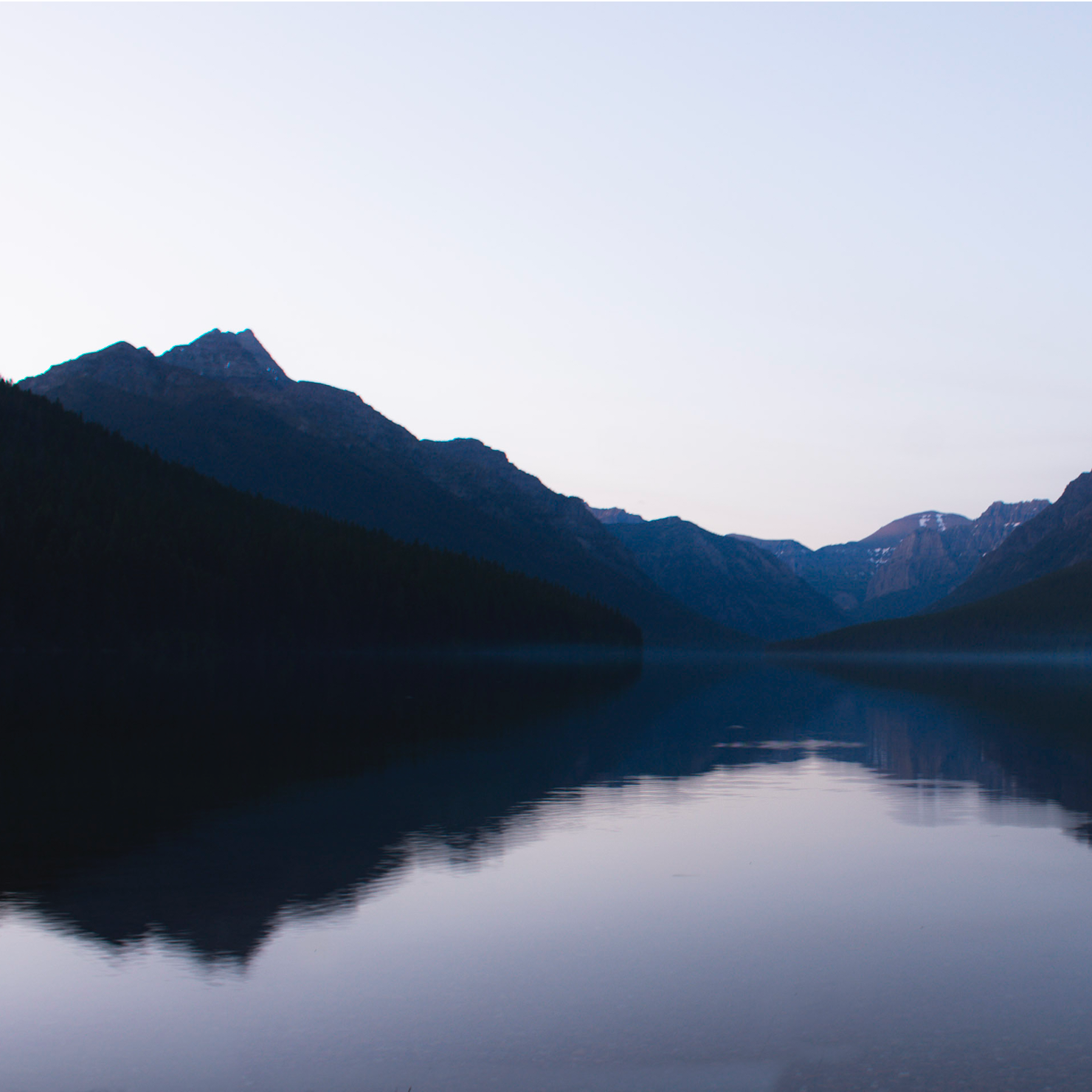
Bowman Lake Campground — Glacier National Park
Bowman Lake Campground is a remote getaway in Glacier's North Fork region, reached by a rough, narrow dirt road from the tiny community of Polebridge. It offers 48 first-come, first-served sites near the shore of Bowman Lake, a gorgeous mountain lake far from the crowds. Sites are primitive - expect vault toilets, no running water (hand-pump or bring your own), and no generators allowed. What Bowman lacks in amenities it makes up for in serenity and scenery: campers are treated to crystal-clear starlight, loons calling from the lake, and sunrise alpenglow on the Livingston Range. The lake is great for canoeing and fishing (catch-and-release for native trout). With no cell service or facilities, Bowman Lake is all about quiet nature immersion.
St. Mary & Rising Sun Campgrounds
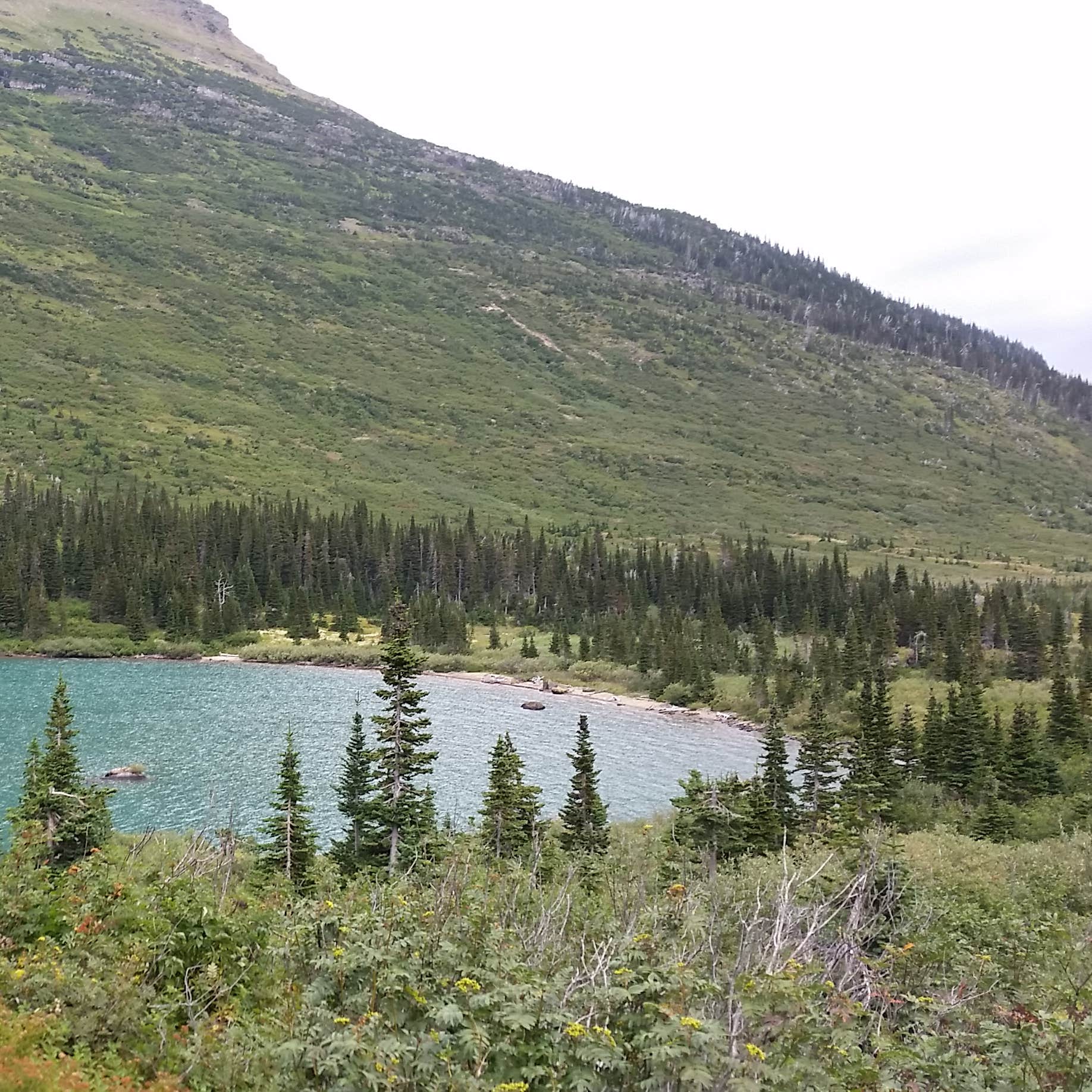
St. Mary Campground
St. Mary Campground is the largest campground on Glacier's east side, with 148 sites conveniently located near the St. Mary visitor center and park entrance. Sitting at 4,500 feet elevation, St. Mary offers sweeping views of Little Chief Mountain and the eastern edge of Going-to-the-Sun Road. The campground is mostly open with young aspen and shrubs, providing less shade but great sunrise views. Sites can accommodate tents and RVs (a few up to 40 feet). Modern restrooms with flush toilets and running water are available, and in summer the campground has an associated dump station. St. Mary is one of the few campgrounds that takes reservations and then switches to first-come, first-served for fall and winter camping.
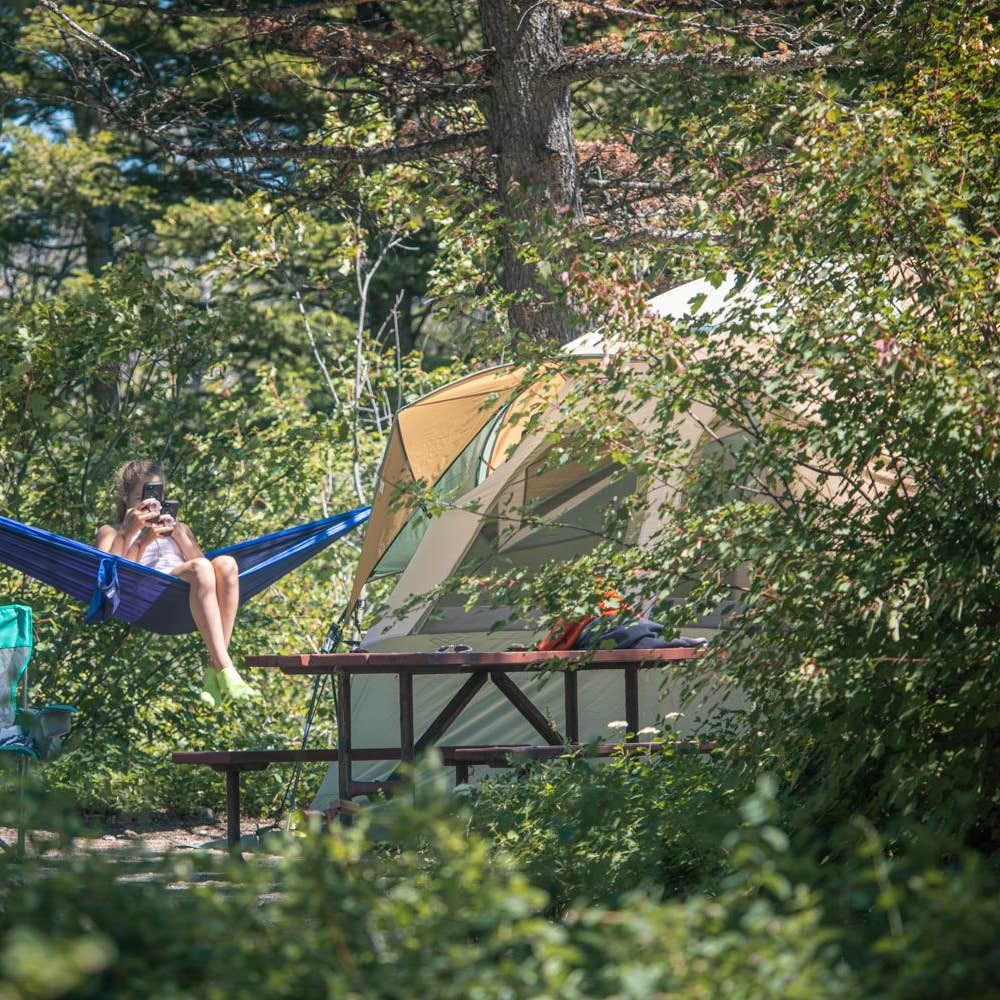
Rising Sun Campground — Glacier National Park
Rising Sun Campground sits along Going-to-the-Sun Road on the shore of St. Mary Lake, about 6 miles west of St. Mary Entrance. Its 84 sites are first-come, first-served and tend to fill by early afternoon in peak season. The campground is nestled at the base of Red Eagle Mountain, giving dramatic backdrops. Many sites are in aspen groves or next to Rose Creek, which runs through the camp - fall asleep to the sound of rushing water. Rising Sun's name is fitting: campers often walk to the lakeshore at dawn to watch sunrise light up the peaks across St. Mary Lake. Amenities include flush toilets, drinking water, and a sink for dishwashing, but no showers.
Many Glacier Area Campground
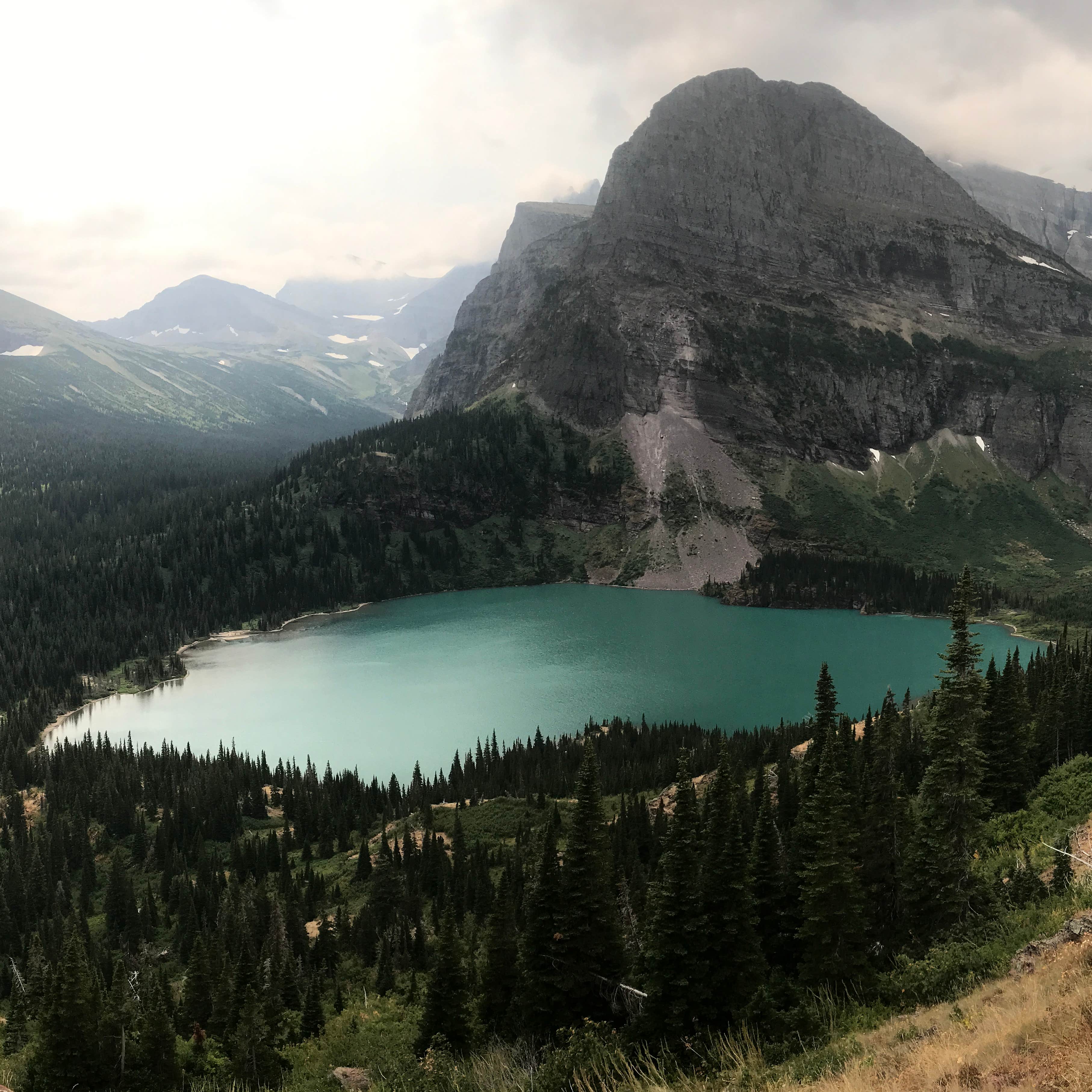
Many Glacier Campground — Glacier National Park
Many Glacier Campground is one of Glacier's most iconic camping spots, located in the northeast section of the park. It offers 109 sites in a stunning valley surrounded by jagged peaks and active glaciers. Note: Many Glacier Campground is closed for the entire 2025 season due to major road and utility work in the Swiftcurrent area. When open, this campground is extremely popular and operates on a reservation system. Sites accommodate tents and RVs up to 35 feet, and amenities include potable water, flush toilets, and an outdoor sink for dishwashing. Many Glacier sits at the gateway to some of the park's best hikes - trails to Grinnell Glacier, Iceberg Lake, Swiftcurrent Pass, and others start nearby. Wildlife is abundant; campers often see moose in the marshy areas and bears on distant hillsides.
Two Medicine & Cut Bank Campgrounds
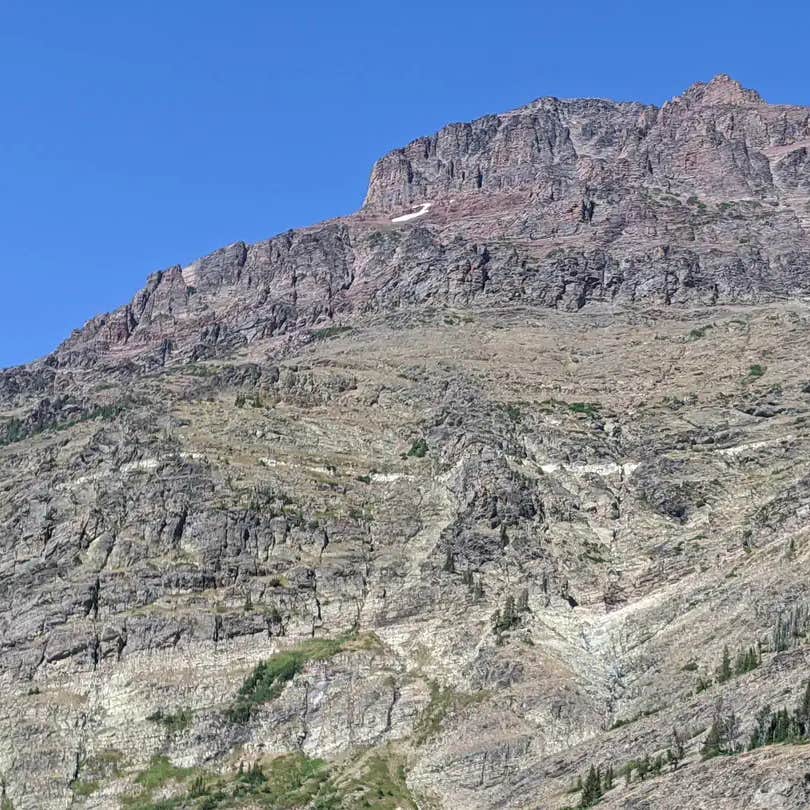
Two Medicine Campground — Glacier National Park
Two Medicine Campground lies in the scenic Two Medicine Valley in the southeast corner of Glacier. With 100 sites along the shores of Two Medicine Lake, this campground offers a quieter alternative to the busier east side hubs. Sites are generally reservable in peak summer due to popularity. The campground sits in a forest of spruce and fir, and many sites have views of Sinopah Mountain towering above the lake. Flush toilets and potable water are available, but no showers or hookups. Two Medicine is known for its serenity and cultural significance. Campers can take advantage of the tour boat that departs from the nearby boat dock, which also rents canoes and kayaks.
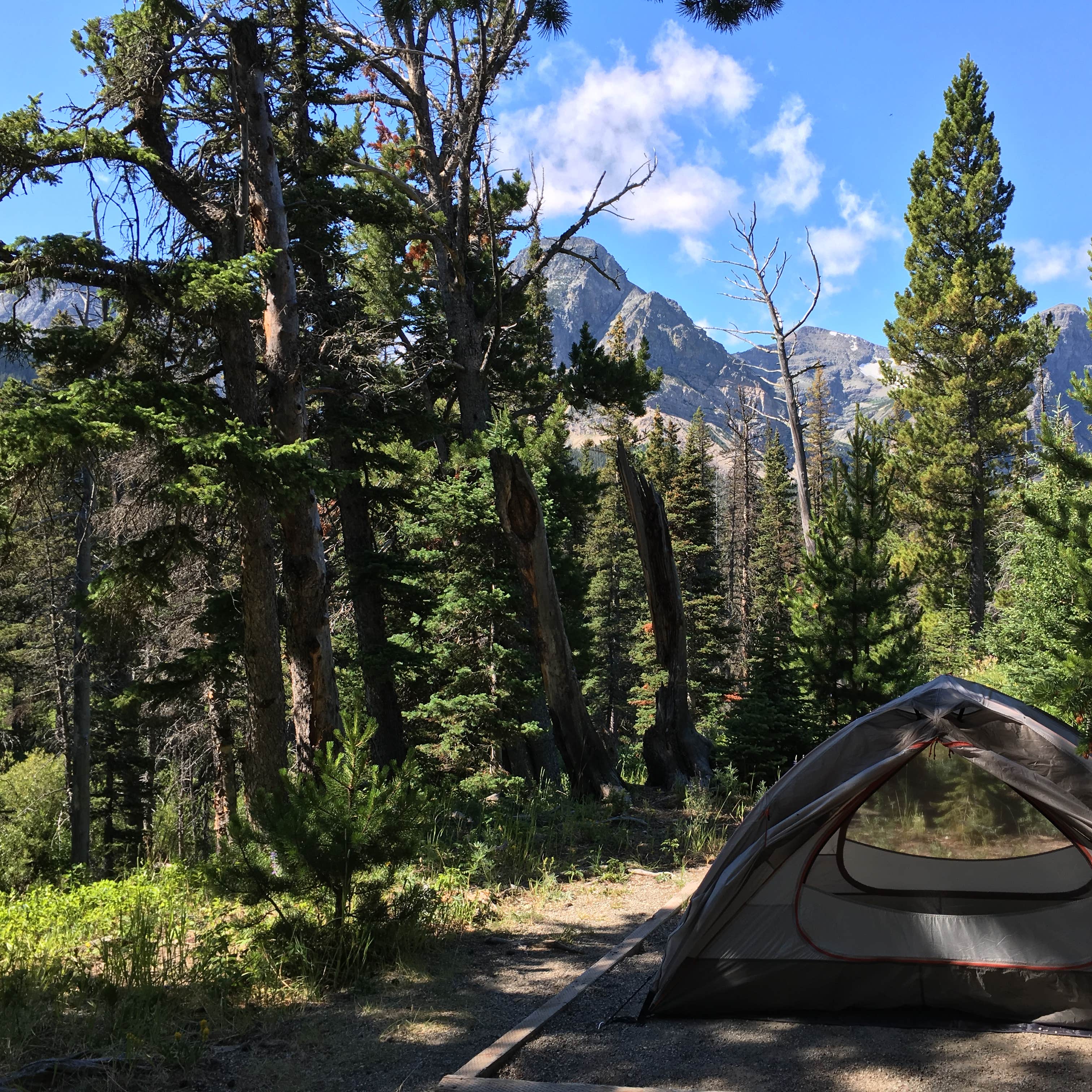
Cut Bank Campground — Glacier National Park
Cut Bank Campground is a small, rustic campground on the park's eastern prairies, about 5 miles down a gravel road from Highway 89. Its 14 sites are tents-only (small campers can enter but rough road conditions discourage RVs) and entirely first-come, first-served. No potable water is provided (bring your own or filter from Cut Bank Creek) and only vault toilets serve the campground. What Cut Bank lacks in amenities it makes up for with solitude and big-sky views. At 5,000 feet elevation on the grassy edge of Glacier's mountains, the campground affords sweeping vistas of the plains meeting the peaks - especially stunning at sunrise and sunset.
Glacier Campground Comparison Table
| Campground | Location & Sites | Cost & Reservations |
|---|---|---|
| Apgar | West Entrance / Lake McDonald 194 sites | $20 (summer), $10 (winter) Reservable (summer) |
| Fish Creek | Lake McDonald (West Side) 178 sites | $23 Reservable |
| Sprague Creek | Lake McDonald 25 sites (tents only) | $20 Reservable |
| Avalanche | Going-to-the-Sun Road 87 sites | $20 Reservable |
| Bowman Lake | North Fork 48 sites | $15 First-come |
| Kintla Lake | North Fork 13 sites | $15 First-come |
| St. Mary | East Entrance 148 sites | $23 (summer), $20 (off-season) Reservable (peak) |
| Rising Sun | St. Mary Lake 84 sites | $20 First-come |
| Many Glacier | NE Glacier 109 sites | $23 Reservable (closed 2025) |
| Two Medicine | SE Glacier 100 sites | $20 Reservable |
| Cut Bank | SE Glacier 14 sites | $10 First-come |
Planning Your Glacier Camping Trip 
When to Visit Glacier
Each season offers a different camping experience in Glacier. Weather conditions and campground availability vary significantly throughout the year:
| Season | Temperatures | Camping Conditions |
|---|---|---|
| Spring (April-May) | Days: 40-60°F Nights: 20-30°F (below freezing common) | Very limited camping - Apgar opens first (April) Many roads & higher camps still snowed-in; low crowds |
| Summer (June-August) | Days: 70-80°F (valleys) Nights: 40-50°F (cooler in mountains) | All campgrounds open by late June Peak demand: reservations needed; first-come sites fill early |
| Fall (September-October) | Days: 50-65°F Nights: 25-35°F (frost frequent) | Early Sept still busy, but crowds thin after Labor Day Most campgrounds close by late Sept; gorgeous fall colors |
| Winter (November-March) | Days: 20-40°F Nights: 0-20°F (subzero possible) | Apgar and St. Mary offer primitive sites Heavy snow closes interior roads; extreme quiet and cold |
Glacier Reservation Systems Explained
Securing a campsite in Glacier requires understanding the reservation system. Seven campgrounds require advance reservations through Recreation.gov, while six operate on a first-come, first-served basis. Reservations typically open 6 months in advance for peak season dates.
Reservation Campgrounds: Fish Creek, Many Glacier (closed 2025), Apgar, St. Mary, Avalanche, Sprague Creek, and Two Medicine all require advance reservations during peak season. Book through Recreation.gov exactly 6 months in advance at 8:00 AM Mountain Time.
First-Come Campgrounds: Bowman Lake, Kintla Lake, Rising Sun, Cut Bank, Logging Creek, and Quartz Creek operate on first-come, first-served basis. Arrive early in the morning (before 9 AM) for best chances during summer.
Campground Costs and Budgeting
| Campground Type | Nightly Cost | Key Features |
|---|---|---|
| Primitive Campgrounds | $10-$15 | Cut Bank, Logging Creek - vault toilets, no running water |
| Standard Campgrounds | $20-$23 | Apgar, St. Mary, Fish Creek - flush toilets, water, dump stations |
| Group Sites | $40-$70 | Available at select campgrounds, accommodate larger groups |
Additional Costs and Budget Tips
Park Entry Fees: Park entrance costs $35 per vehicle for 7 days or $70 for an annual Glacier pass. The America the Beautiful Pass at $80 covers all national parks annually.
Facility Fees: Shower facilities cost around $5-7 per shower at private facilities near the park. Firewood costs $8-10 per bundle. Ice runs $3-5 per bag at general stores.
Budget-Friendly Options: National Forest campgrounds around Glacier cost $8-20 per night. Dispersed camping on forest land is free. Off-season primitive camping reduces fees significantly.
Essential Gear for Glacier Camping
Pack for Glacier's variable mountain weather and bear country requirements:
Shelter and Sleep System:
- Four-season tent or sturdy three-season tent
- Sleeping bag rated to 20°F or lower
- Insulated sleeping pad (R-value 3+)
- Extra blankets for cold nights
Bear Safety and Food Storage:
- Bear spray (essential for hiking and camp safety)
- Bear-resistant food containers (or use provided bear boxes)
- Proper food storage knowledge and practices
Mountain Weather Gear:
- Layered clothing system for 30s to 80s°F temperature range
- Waterproof rain jacket and pants
- Warm hat and gloves (even in summer)
- Hiking boots and camp shoes
Navigation and Communication:
- Offline maps and compass (limited cell service)
- Headlamp with extra batteries
- Emergency whistle
- First aid kit with altitude sickness medication
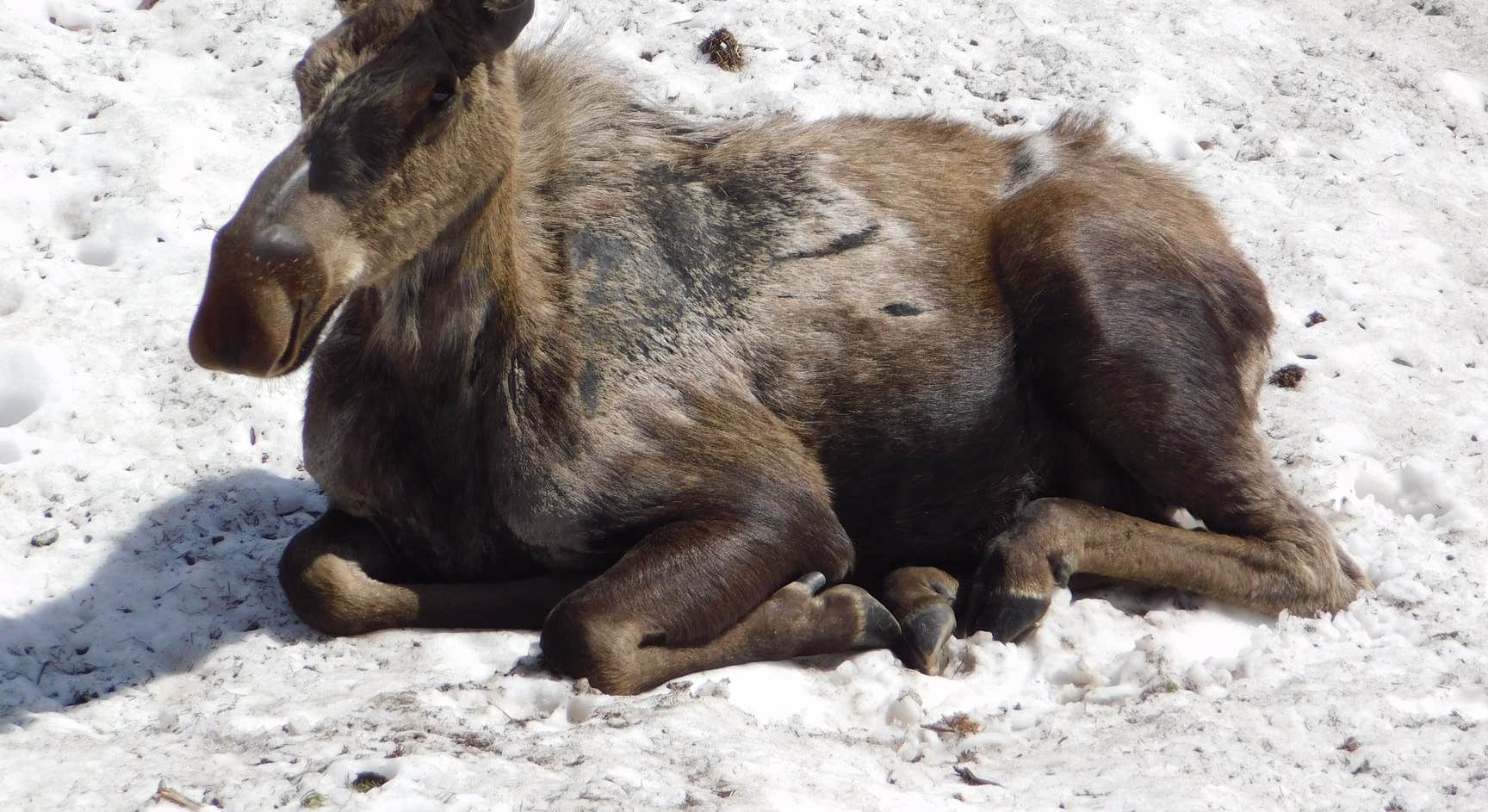 Photo by Teresa B
Photo by Teresa B
Wildlife Safety and Park Regulations 
Bear and Moose Safety in Glacier
Glacier is home to black bears, grizzly bears, and moose, making proper safety practices essential:
Food Storage Requirements:
All food, toiletries, scented items, and garbage must be stored in bear-proof containers when not actively in use. Use the metal bear lockers provided at each campsite or lock items in hard-sided vehicles. Never store food or scented items in tents.
Bear Encounters:
Carry bear spray and know how to use it when hiking or moving around camp at night. Make noise while hiking to avoid surprising bears. If you encounter a bear, do not run - back away slowly while facing the animal and speaking in calm tones.
Moose Encounters:
Moose are present throughout Glacier National Park and can be aggressive, especially during mating season (fall) or when protecting calves. Give moose at least 25 yards (50+ yards preferred) of space and never approach them, as they can charge without warning and kick with powerful hooves. If a moose approaches you, back away slowly and put trees or large rocks between yourself and the animal.
Glacier Park Regulations and Etiquette
| Regulation Category | Specific Rules | Penalties |
|---|---|---|
| Campfires | Permitted only in designated fire rings Never leave unattended Completely extinguish before leaving | Citations and fines Possible campground eviction |
| Quiet Hours | 10:00 PM to 6:00 AM Generator hours: 8:00 AM to 8:00 PM | Warnings and possible eviction |
| Wildlife | Feeding prohibited 100 yards from bears 25 yards from other animals | Significant fines and citations |
Additional Safety Considerations
Weather Preparedness: Mountain weather changes rapidly. Always pack layers and rain gear, even for day hikes. Afternoon thunderstorms are common in summer.
Water Safety: Treat all water from natural sources. Many primitive campgrounds lack potable water, requiring filtration or water transport.
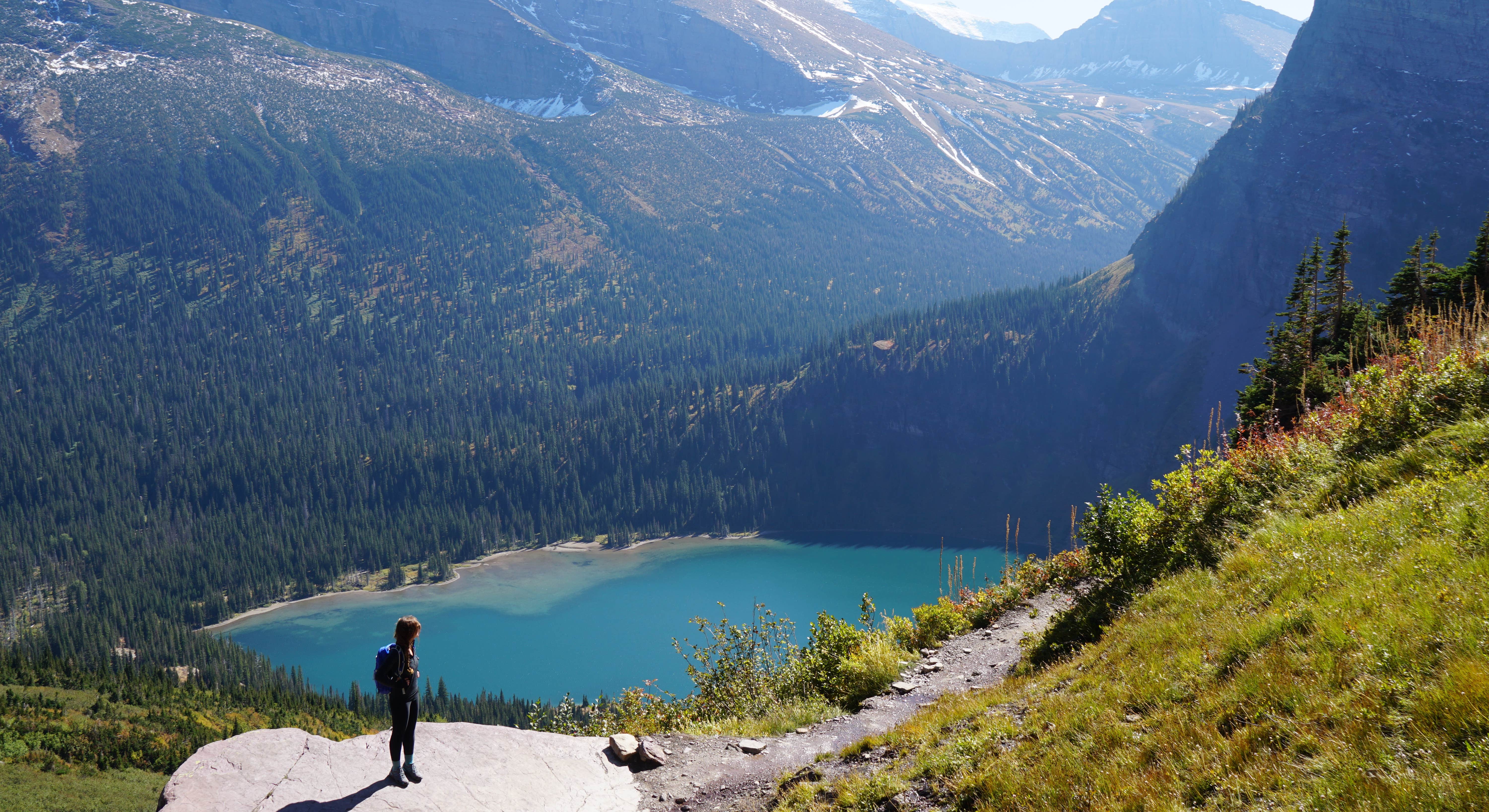 Photo by Emma C
Photo by Emma C
Beyond the Campground: Activities and Exploration 
Day Trips from Glacier Campgrounds
From West Side Campgrounds (Apgar/Fish Creek):
The Going-to-the-Sun Road provides access to Logan Pass and the park's alpine heart. Take the park shuttle or drive early to avoid crowds. Stop at Lake McDonald Lodge for historic ambiance and Trail of the Cedars for an easy boardwalk hike. The Apgar Lookout Trail offers panoramic views after a moderate 3.3-mile climb.
From East Side Campgrounds (St. Mary/Rising Sun):
Access the dramatic east side of Going-to-the-Sun Road with stops at Wild Goose Island Overlook and the Hidden Lake Overlook trail at Logan Pass. St. Mary Falls provides an easy 1.7-mile hike to a beautiful waterfall. The boat cruise on St. Mary Lake offers scenic touring with ranger commentary.
From Many Glacier Area:
When open, Many Glacier provides access to some of the park's most spectacular hikes including Grinnell Glacier and Iceberg Lake. The valley offers unmatched wildlife viewing opportunities and serves as the gateway to the park's most dramatic alpine scenery.
From Two Medicine Area:
This quieter area offers the Two Medicine Lake boat tour and access to several excellent hikes. The Scenic Point trail provides stunning views after a challenging 6.2-mile round trip. Twin Falls offers an easier option accessible via boat shuttle across the lake.
Top Hiking Trails Near Campgrounds
| Trail Name | Difficulty & Distance | Key Features |
|---|---|---|
| Avalanche Lake | Moderate 4.5 miles RT | Old-growth forest, alpine lake with waterfalls, boardwalk sections |
| Hidden Lake Overlook | Moderate 2.8 miles RT | Logan Pass trailhead, mountain goats, alpine views, boardwalk |
| Grinnell Glacier | Strenuous 10.6 miles RT | Active glacier, turquoise lakes, wildlife viewing (when accessible) |
| St. Mary Falls | Easy 1.7 miles RT | Accessible waterfall, can extend to Virginia Falls |
| Scenic Point | Strenuous 6.2 miles RT | Panoramic views of plains and peaks, high winds at summit |
Boating and Water Activities
Glacier's pristine lakes offer limited but memorable water recreation:
Lake Activities:
- Lake McDonald: Largest lake with boat rentals and tours available at Apgar
- St. Mary Lake: Scenic boat tours with ranger interpretation
- Two Medicine Lake: Boat shuttle service to trailheads, canoe and kayak rentals
- Bowman and Kintla Lakes: Primitive boating on remote mountain lakes
Fishing Opportunities:
Native cutthroat trout fishing is available in many park waters. No Montana fishing license required within park boundaries, but park regulations apply. Practice catch-and-release for native species to protect these pristine populations.
The Dyrt Community Insights 
Ranger Recommendations
The Dyrt Rangers offer these insider tips from experienced Glacier campers:
Fish Creek Best Sites:
"Try to reserve sites in Loop D along the lake," suggests one Ranger. Fish Creek's D-loop backs up near Lake McDonald's shoreline with short trails to the pebble beach for sunrise viewing. Loop D is also generator-free, making it more peaceful than other areas.
Hidden Gem Campground:
"Cut Bank Campground doesn't get enough love," according to one Ranger who values solitude. Despite rough road access and primitive facilities, Cut Bank offers incredible stargazing, wildflower meadows, and sweeping prairie views with minimal crowds even in peak season.
Free Camping Favorite:
Rangers consistently recommend Blankenship Bridge campground area for dispersed camping near West Glacier. Located on national forest land, it provides free camping just 15 minutes from the park entrance with riverside sites and mountain views.
Top-Rated Sites from The Dyrt Community
| Category | Top Pick & Rating | Key Highlights |
|---|---|---|
| Highest-Rated In-Park | Many Glacier 4.9/5 stars | Dramatic mountain scenery, wildlife viewing, prime hiking access (closed 2025) |
| Most Recommended Private | West Glacier KOA 4.8/5 stars | Resort amenities, heated pool, proximity to park entrance |
| Best for Families | Apgar Campground 4.6/5 stars | Visitor services, lake access, ranger programs, year-round operation |
| Most Peaceful | Two Medicine 4.7/5 stars | Quiet valley setting, stunning mountain backdrop, cultural significance |
Community Insights and Recommendations
Wildlife Encounters: Community reviews frequently mention bear and moose sightings, particularly at Many Glacier and Two Medicine. Reviewers consistently emphasize proper food storage and bear spray as essential safety measures.
Weather Preparedness: Campers regularly note the importance of warm sleeping gear even in summer, with many reporting frost on tents during July mornings at higher elevation campgrounds.
Campground Personalities: Apgar is described as social and family-friendly but can be crowded. Bowman Lake offers true solitude but requires self-sufficiency. St. Mary provides convenience but can be windy due to its exposed location.
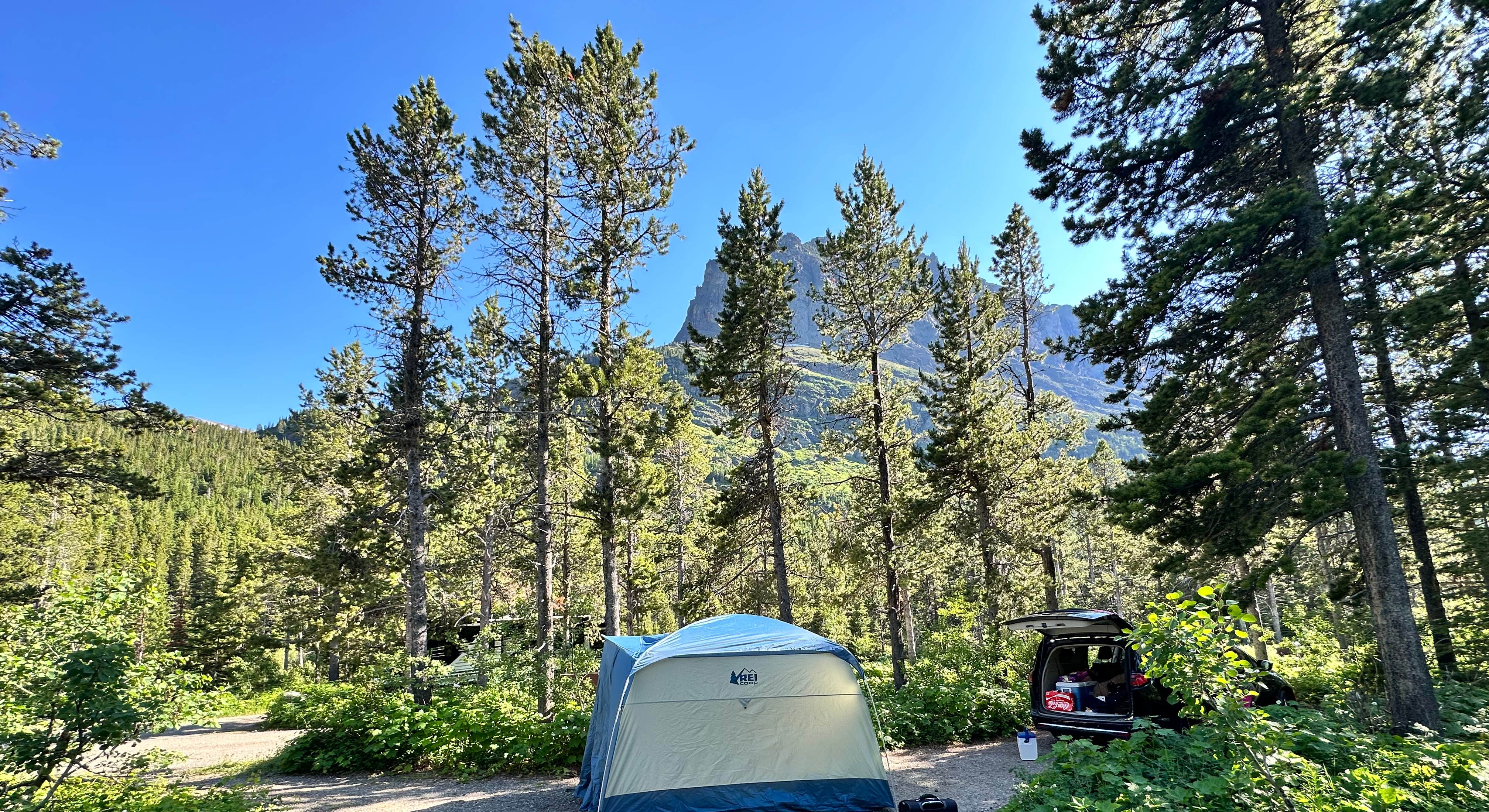 Photo by Joseph L
Photo by Joseph L
Responsible Camping Practices 
Leave No Trace in Glacier
Camping in Glacier requires careful attention to environmental protection:
Pack It In, Pack It Out:
Remove all trash, food scraps, and belongings when leaving. Even small items like fruit peels or crumbs can harm wildlife. Use designated bear-proof trash containers or pack garbage securely until reaching proper disposal facilities.
Respect Wildlife and Habitat:
Never feed animals and maintain required distances (100 yards from bears, 25 yards from other wildlife). Store all food and scented items properly to prevent wildlife conflicts. Keep campsites clean to avoid attracting animals.
Fire Safety and Wood Collection:
Use only designated fire rings and completely extinguish all fires. Purchase firewood locally rather than transporting it to prevent invasive species introduction. Never burn trash or leave fires unattended.
Cultural Respect
Glacier sits on traditional lands of the Blackfeet Nation and other Indigenous peoples. Show respect by following all park regulations, staying on designated trails, and learning about the cultural significance of this landscape.
Frequently Asked Questions 
When do Glacier campgrounds open and close? Most campgrounds open late May or June depending on weather and close by mid-September. Apgar and St. Mary offer year-round camping in primitive conditions (no running water) during winter months. Higher elevation campgrounds like Avalanche may not open until late June in heavy snow years.
Are RV hookups available in Glacier campgrounds? No Glacier campgrounds provide electrical, water, or sewer hookups. All RV camping in the park is dry camping. Most larger campgrounds have dump stations and water fill stations available. Generator use is permitted during specified hours (typically 8 AM to 8 PM).
Do I need reservations to camp in Glacier? Seven campgrounds require reservations during peak season through Recreation.gov. Six campgrounds operate on first-come, first-served basis. For first-come campgrounds, arrive early morning for best chances during summer months.
What's the best campground in Glacier? The best campground depends on your priorities. Many Glacier (when open) offers dramatic scenery and hiking access. Apgar provides convenience and services. Fish Creek offers lakeside forest camping. Two Medicine provides serenity with stunning mountain views.
Is bear spray necessary in Glacier? Yes, bear spray is strongly recommended for all activities in Glacier, including camping. Both black and grizzly bears inhabit the park. Carry bear spray while hiking and keep it accessible at camp. Know how to use it before entering bear country.
Can I have campfires in Glacier? Campfires are permitted only in designated fire rings at established campgrounds. Fire restrictions may be in effect during dry conditions. Always completely extinguish fires before leaving your site or sleeping. Purchase firewood locally to prevent invasive species spread.
Glacier National Park Planning Resources
Essential Glacier Links
- The Dyrt's Top Glacier Campgrounds with Reviews - Top Glacier campgrounds with user reviews and photos for Glacier's most popular camping spots
- Glacier National Park Official Website - Current conditions, alerts, and road status for Glacier National Park
- Recreation.gov - Booking platform for reservable campgrounds
- Glacier Road Status - Current road openings and Going-to-the-Sun Road conditions
- Glacier Weather Information - Glacier seasonal forecasts and climate data
Glacier Reservation Timeline
| Time Period | Reservation Task | Platform/Details |
|---|---|---|
| 6 Months Before Trip | Book reservable campgrounds | Recreation.gov (Fish Creek, Apgar, St. Mary, Many Glacier, etc.) Set calendar reminder for exact opening date |
| 2-3 Months Before | Monitor for cancellations | Check Recreation.gov regularly for openings Consider first-come campgrounds as backup |
| 1 Month Before | Finalize gear and permits | Purchase bear spray locally if flying in Check road conditions and weather forecasts |
| 1-2 Weeks Before | Final preparations | Download offline maps Check campground status and fire restrictions |
| Day Before Arrival | Confirm accessibility | Check road status and weather conditions Print reservation confirmations |
Glacier Camping Checklist
Reservations and Documents:
- Campground reservation confirmation
- National Park entrance pass
- Photo ID and credit card
- Printed offline maps (limited cell service)
Camping Gear:
- Four-season or sturdy three-season tent with rainfly
- Sleeping bag rated to 20°F or lower
- Insulated sleeping pad (R-value 3+)
- Extra blankets for cold mountain nights
- Headlamp with extra batteries
- Camp chairs or seating
Bear Safety and Food Storage:
- Bear spray (one per hiking group)
- Bear-resistant food containers (if not using campground boxes)
- Proper food storage knowledge
- Cooler with secure latching mechanism
Mountain Weather Clothing:
- Layering system for 30s-80s°F temperature range
- Waterproof rain jacket and pants
- Insulating layers (fleece or down jacket)
- Warm hat and gloves (even for summer)
- Hiking boots and comfortable camp shoes
- Sun protection (hat, sunglasses, sunscreen)
Cooking and Kitchen:
- Camp stove with adequate fuel
- Waterproof matches or lighter
- Cookware and eating utensils
- Water containers and filtration system
- Biodegradable soap for cleanup
- Trash bags for pack-out
Safety and Navigation:
- First aid kit with basic medications
- Emergency whistle
- Offline maps and compass
- Insect repellent
- Portable phone charger or solar charger
- Emergency contact information
By planning carefully and respecting the unique challenges of Glacier's mountain environment, your camping trip will create lasting memories in one of America's most spectacular national parks. Whether you're watching sunrise paint the peaks from your lakeside campsite, spotting wildlife in the early morning hours, or simply enjoying the profound quiet of a wilderness night, camping in Glacier offers experiences that connect you directly to the raw beauty of the Northern Rockies.

